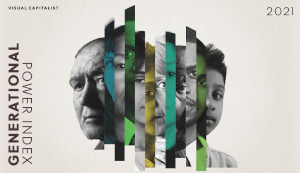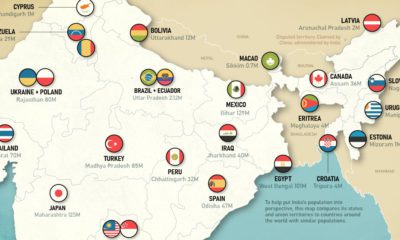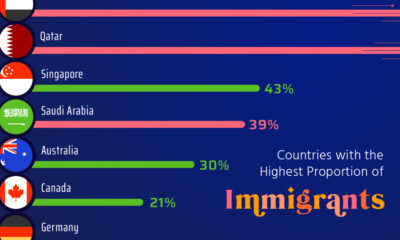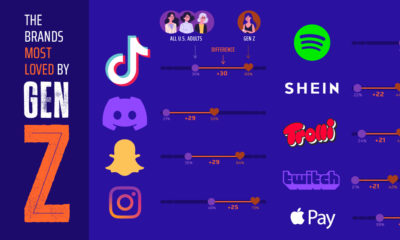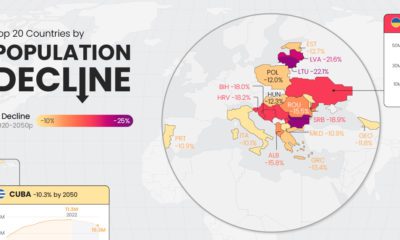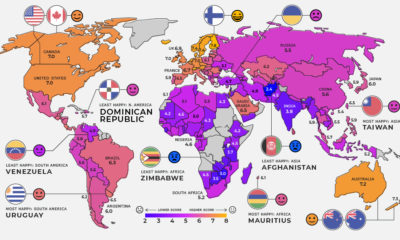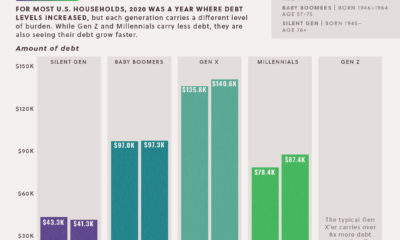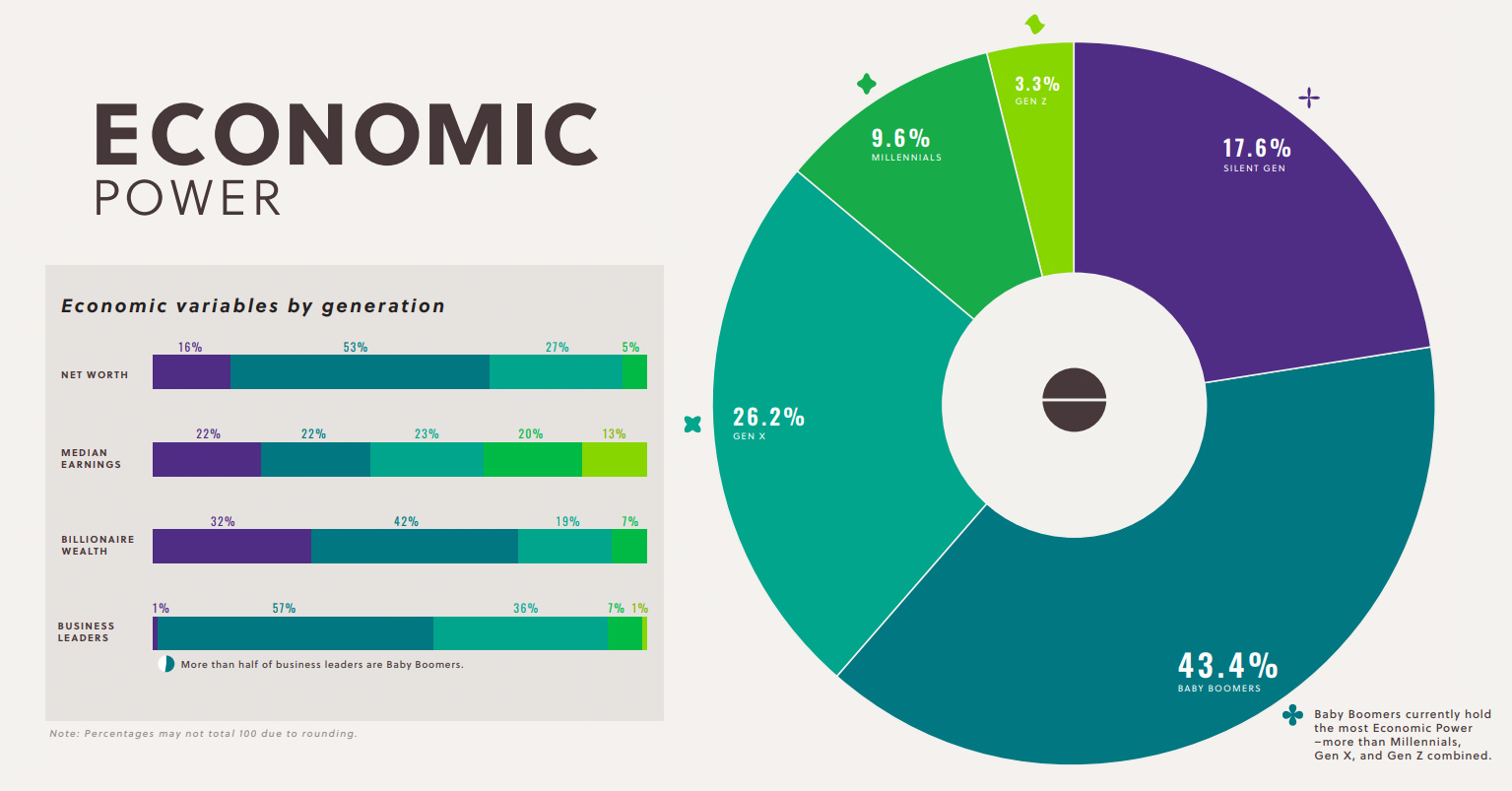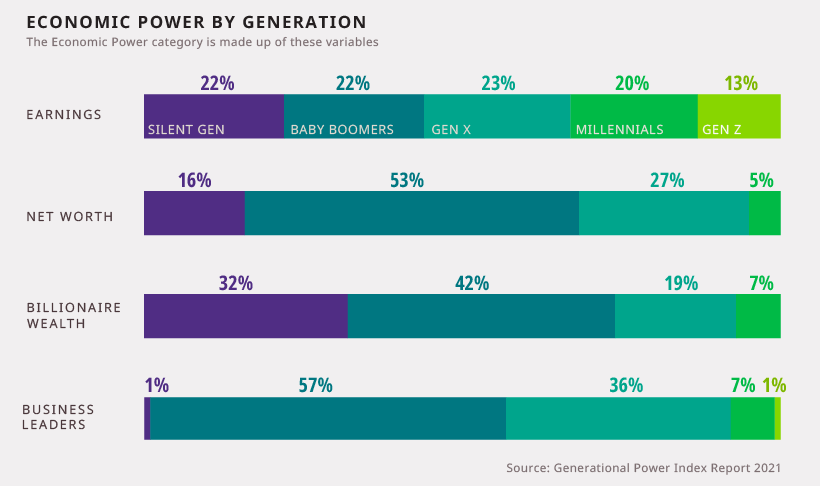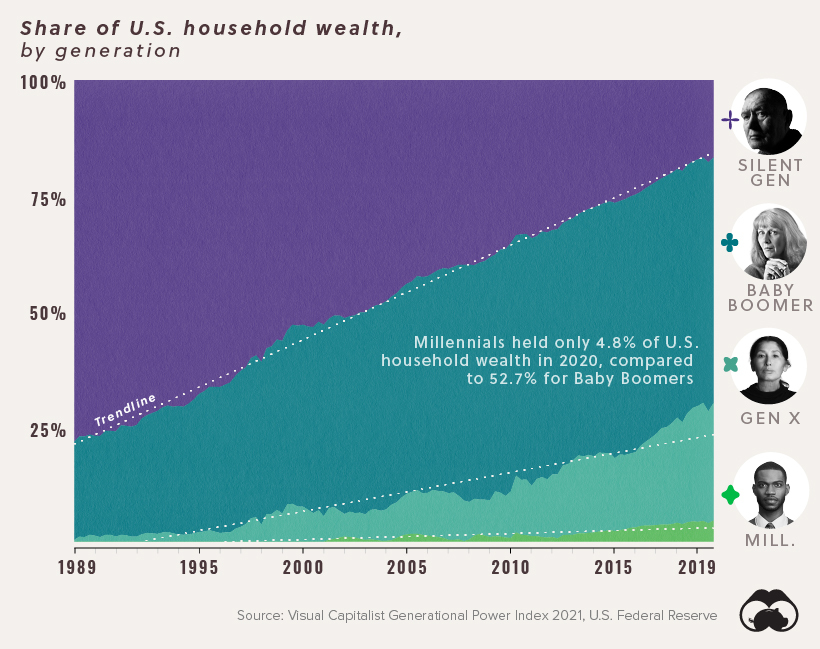Using insights from our Generational Power Index 2021 report, along with survey data from Pew Research in 2016, we identified some key milestones for each cohort, to understand how these events helped shape each generation’s unique perspectives.
Quick Context on Generational Definitions
Before diving in, it’s important to clarify which generations we’ve included in our research, along with their age and birth year ranges. These generational categories aren’t universal, but we went with the most widely cited definitions from reputable U.S. sources including the Pew Research and the U.S. Federal Reserve. It’s also worth noting that these generational definitions are somewhat specific to North America. For this reason, the focus is on U.S. historic events.
Defining Events: Silent Generation
The oldest members of the Silent Generation were 11 years old at the start of World War II, and were teenagers by the time it ended. In other words, their formative years fell smack dab in the middle of one of the biggest international conflicts in modern history. Because of this, it makes sense that World War II ranks as the second most impactful event in their lifetimes, trailing only the far more recent Sept. 11 terrorist attacks (2001). Most Impactful Historic Events, Silent Gen (Survey Results) In fact, the Silent Generation cited four different wars on their list, more than any other cohort. For context, Boomers identified three conflicts (including the Cold War), while Millennials only referenced one (Iraq/Afghanistan). Of course, other not-so-violent events made the list as well. And interestingly, some of these impressionable moments occurred later on in life. For example, the youngest members of The Silent Generation were already in their mid-t0-late forties when cellphones became common in the ‘90s—yet, 27% identified the tech revolution as one of the top 10 most impactful events that happened in their lifetime. Clearly, life never stops throwing you curve balls—no matter how far along you might be.
Most Notable Historical Events: Baby Boomers
Many of the historical experiences cited by Baby Boomers were related to war and violent acts. For instance, Boomers identified two assassinations on their list—John F. Kennedy’s in 1963, and Martin Luther King’s in 1968. Most Impactful Historic Events, Boomers (Survey Results) For this generation, the moon landing in 1969 made the cut, as did Barack Obama’s election win in 2008. Baby Boomers only identified one event that was unique to their cohort (Martin Luther King’s death). It’s worth noting that responses varied between Americans of different racial backgrounds. Not surprisingly, Black Americans were far more likely to name MLK’s death as a top defining moment.
Most Notable Historical Events: Gen X
For Gen Xers, two unique events made their list: the Challenger disaster (1986) and the Gulf War (1991). Interestingly, neither of of these events stood out for other generations. The Challenger disaster impact was widely felt because it involved civilians alongside astronauts, making the space shuttle’s explosion all the more notorious. Most Impactful Historic Events, Gen Xers (Survey Results) Hurricane Katrina (which occurred in 2005) is the only natural disaster to make it on any of these lists. The hurricane—which caused a significant share of New Orleans’ population to resettle—left a lasting impression on the nation.
Most Notable Historical Events: Millennials
Millennials remember the September 11 attacks the most of all generations, with 86% citing it as their most influential event. They also paid close attention to the aftermath of this occurrence, as marked by the inclusion of both the Iraq/Afghanistan wars and the death of Osama Bin Laden among their most notable events. Most Impactful Historic Events, Millennials (Survey Results) Sadly, a lot of Millennials recollect instances of gun violence more than any other generation, from Orlando and Columbine to Sandy Hook. Last but not least, Millennials are the only generation to note the Global Financial Crisis of 2008, and the subsequent Great Recession, as a momentous event. This makes sense considering many of them began their careers in its aftermath.
Gen Z and Younger
The Pew Research survey data was collected in 2016, so opinions on more recent events have not been collected. That said, it could be premature to say in the short term which events will leave a lasting impression on generations, young and old. According to the above data, the election of Barack Obama was a lasting milestone in recent history. Will the election of Donald Trump leave a similar impact? How will COVID-19 be regarded in the future? Time will tell which events will define future generations.
Moments, Movements, and Everything in Between
One key takeaway worth emphasizing is just how varied these formative events can be. Some were experienced as a single moment, while others were a culmination of shifts over several years. It’s also clear that timing and duration are not the only determining factors behind an event’s influence on American society. For example, the moon landing was a tangible moment with a date stamp, whereas the tech revolution has a much fuzzier start (before exploding in significance alongside the Dotcom boom and bust). Also interesting is what is absent from the top results. For example, the Global Financial Crisis of 2008 is barely referenced. In short, a variety of impactful events and more gradual revolutions have made their mark on American society. Some have influenced specific generations, while others have transcended generational boundaries and unified the American public. Download the Generational Power Report (.pdf)
For a full methodology of how we built the Generational Power Index, see pages 28-30 in the report PDF. This is the first year of the report, and any feedback is welcomed. on And when it comes to money and economic power, our research has concluded that Baby Boomers, those between the ages of 57-75, have more influence than Millennials, Gen X, and Gen Z combined. These findings may seem intuitive, but what exactly contributes to economic power? To find out, let’s take a closer look at the GPI’s underlying variables.
The Building Blocks of Economic Power
Our starting point was to define the age ranges of each generation: Using these ranges as a framework, we then calculated our four underlying variables of economic power. Here’s what the distribution within each one looked like:
The earnings variable represents the median weekly earnings of full-time workers in the U.S., and was the most evenly distributed of the four variables. Gen Z had the lowest median weekly earnings ($614), while Gen X had the highest ($1,103). Boomers established a clear lead in the second variable, net worth, which represents each generation’s share of overall U.S. wealth. As it turns out, Boomers hold 53% of all wealth in the country—more than all other generations combined. The third variable captures each generation’s share of billionaire wealth, and was dominated by Boomers and the Silent Gen. We calculated this variable by starting with the top 1,000 billionaires globally, then filtering for Americans only. The final variable, business leaders, is based on two underlying metrics: the generational share of both S&P 500 CEOs and small business owners. This enabled us to capture data from two sides of the business spectrum to see who holds power there. Download the Generational Power Report (.pdf)
Shifting Dynamics in Economic Power
America’s wealth distribution is not stagnant, meaning the balance of economic power shifts with each passing year. Keeping this in mind, here are two of the most compelling trends that we discovered while analyzing data for the GPI report.
1. Younger Generations Show Sluggish Growth
The following chart illustrates each generation’s share of household wealth over time.
It makes sense that Baby Boomers would hold the most wealth of any generation. They have had more time to accumulate assets, and the population of Boomers is roughly three times higher than that of the Silent Generation. What’s more interesting, however, is the stark difference in wealth trajectories between Boomers and younger generations. While Boomers entered the workforce in a prosperous post-WWII era, Millennials and Gen Z have either started their careers in the aftermath of the 2008 Financial Crisis, or in the midst of the COVID-19 pandemic. To put it in perspective, when Baby Boomers were as old as today’s Millennials in 1989, they held 21.3% of U.S. wealth. That’s more than four times higher than what Millennials hold now.
2. Small Business: The 99.9%
In fact, small businesses make up 99.9% of all U.S. companies, and employ one-third of the nation’s workforce. Here is who runs small businesses, from a generational perspective:
The 13% share held by Millennials may not sound too impressive, but it is one of the cohort’s strongest areas for economic power. Looking forward, it seems entrepreneurship will grow into an area of strength for both Millennials and Gen Z, who are 188% more likely to want to create a side business compared to older generations. Combine this with the fact that e-commerce adoption has been accelerating even faster than expected due to the pandemic, and it’s easy to see how younger, more tech-savvy generations could quickly expand their influence.
